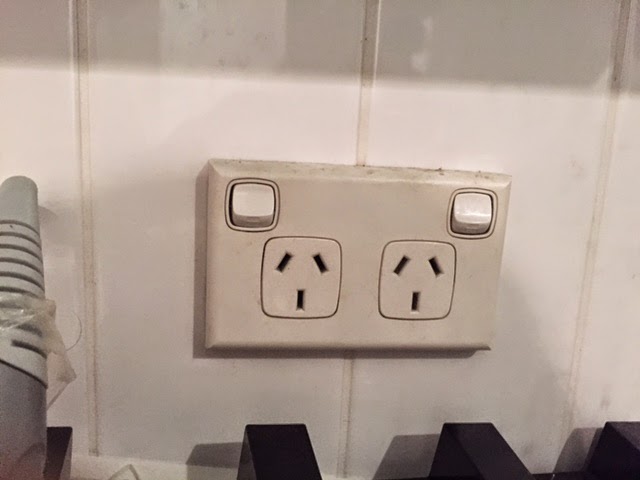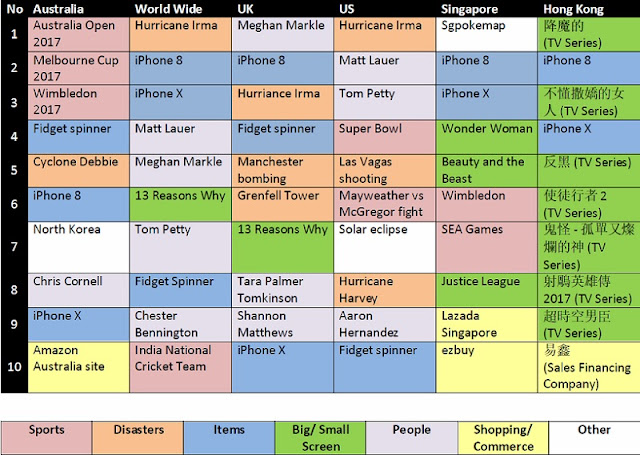Studying in Australia - Mobiles, Internet, Calling home, etc.
With the widespread uptake of smartphones, most would see mobiles as a must have item while studying abroad. Having the internet at home is also a must have as lecture notes, lecture videos and assignments are all done through the internet. Calling home is no longer seen as a luxury these days either. Most have left their families at home, or their special someone.
Here are a few tips about communications.
1. Bring your own mobile phone.
It can be very challenging signing up to a mobile phone postpaid plan while abroad. Most mobile phone providers would be willing to sign you up only if the course you are studying is longer than the contract of the plan. Also if the GST in your country is less than in Australia (10%), it might also be wiser to buy your phone back home.
2. You may need to bring a wall adapter plug for your phone charger.
The wall plug in Australia looks something like the picture shown below. A wall plug adapter would cost between $2 - $15 depending on the quality and where you buy it in Australia. From experience, the cheapest place to buy one is at your local dollar shop (eg Reject Shop, Hot Dollar, Dollar King, etc). Ebay can be a good option as well.
3. Consider a Pre-paid mobile phone plan
Most students will go for a pre-paid mobile phone plan as it gives the biggest amount of flexibility. Also, most mobile service providers are hesitant to sign up students on a post-paid mobile phone plan. The more popular phone companies are Optus, Telstra and Vodafone. There are lots of options with a pre-paid plan with large variations between calls, SMS (we call it TXT in Australia), data and sometimes even international calling minutes.
4. ADSL, ADSL 2+, Cable, NBN? What you get depends where you live.
You will be limited on what type of broadband internet you are able to get depending on where you live. In general, most will be able to access ADSL 2+ (average speed around 10000 kbps). Or if you are lucky, you might get access to NBN (National Broadband Network). The NBN is being installed all around Australia. NBN is a fibre network and gets you speeds between 12 Mbps to 100Mbps. Most plans are data limited. Unlimited plans normally have a cap before they slow your speed down significantly. Also, it can take up to 3 weeks to get your internet at home installed. So be patient!
5. 4G Mobile Broadband
If you have a tablet, you may want to consider a 4G Mobile Broadband. Alternatively 4G can be used with a mobile 4G modem or a USB 4G modem. Data plans are significantly smaller. If you are a small internet user (<10GB per month) and want the flexibility, this may be useful.
6. Call home using an international calling card.
Your local convenience shop or Asian supermarket would be the best place to buy an international calling card. Each calling card have their perks in terms of billing per minute to different countries, service fees, charge per call (flag fall), credit expiry, reverse calling (calling from your home country to you), etc. So do more research on which card you want to buy before going to the shop.
7. Most mobile phones companies offer free in-coming calls.
8. Some mobile phone companies offer free calls to mobiles within the same company or free local calls after a certain hour.
It would be best if you figure out who you are calling most often. If you are calling your classmates a lot in the day, it might be wise to chose the same phone company which offer free calls within the same company. However, if you use most of your calls during the free calls period, you should go for that.
Other related topics
Studying in Australia - 9 Social Etiquette Tips
Studying in Australia - Finding Accommodation
Studying in Australia - What to do when I get sick?
To support my blog, please click on one of my sponsor's advertised links :)
Other related topics
Studying in Australia - 9 Social Etiquette Tips
Studying in Australia - Finding Accommodation
Studying in Australia - What to do when I get sick?
To support my blog, please click on one of my sponsor's advertised links :)




Comments
Post a Comment